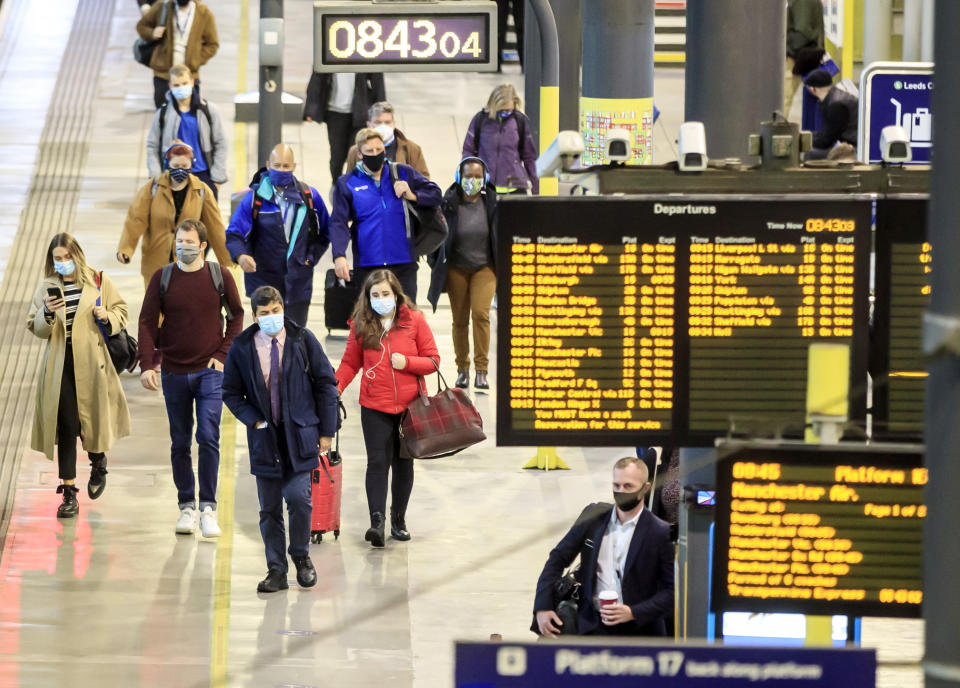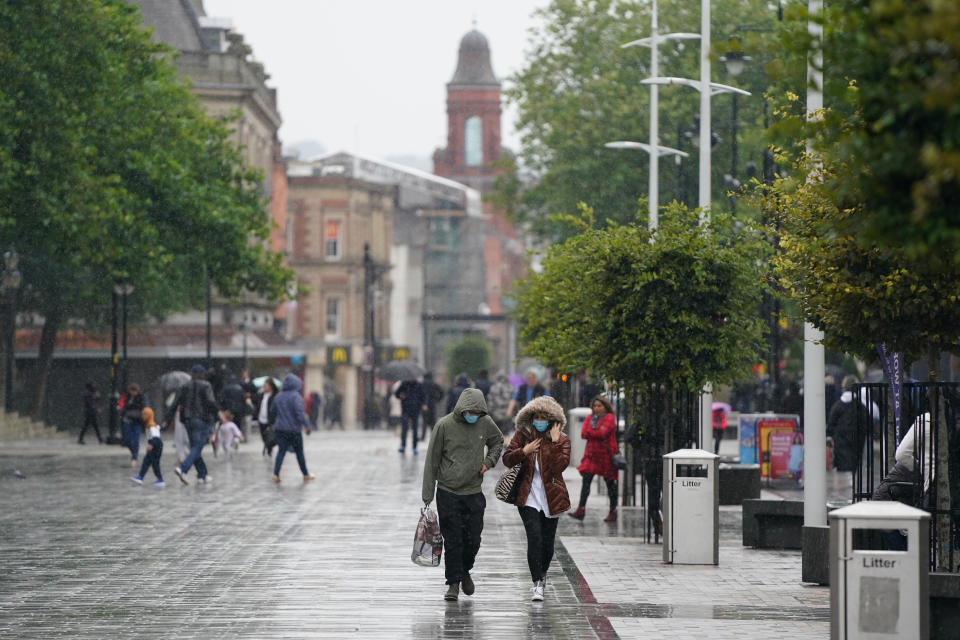UK coronavirus cases jump by another 3,000 as government insists it’s ‘not out of control’

The number of new coronavirus cases has risen to 2,948 in the last 24-hour period.
It means the UK has seen another significant spike in cases for the second day in a row after an increase of 2,988 new cases on Sunday - the highest daily increase since 22 May.
As a result, the seven-day rate of new cases has now risen above 20 cases per 100,000 people - higher than the level at which the Government considers imposing quarantine conditions on people travelling to the UK from other countries.
The number of deaths within 28 days of a positive test being recorded has risen by just 2, taking the government’s official death toll to 41,553, according to the UK government's coronavirus dashboard.
Separate figures published by the Office for National Statistics (ONS) and other agencies - regarded by many as a more accurate toll - show around 57,300 deaths registered in the UK where COVID-19 was mentioned on the death certificate.
The latest figures come as health secretary Matt Hancock admitted he was “concerned” about the spike in cases, which he said was “predominantly among young people” aged 17-21.
He denied accusations the government had “lost control” of the epidemic just as schools are reopening and people return to work.
Watch: Matt Hancock says young people account for a large number of new Covid-19 cases
Former NHS regional director of public health for the south-west Professor Gabriel Scally said on Sunday: “They’ve lost control of the virus. It’s no longer small outbreaks they can stamp on.
“It’s become endemic in our poorest communities and this is the result. It’s extraordinarily worrying when schools are opening and universities are going to be going back.”
Speaking on Monday to LBC, Hancock warned the virus appears to be spreading in greater numbers due to young people.
“The rise in the number of cases we have seen in the last few days is concerning,” he said.
“It is concerning because we have seen a rise in cases in France, in Spain, in some other countries across Europe – nobody wants to see a second wave here.
“The rise in the number of cases we’ve seen in the last few days is largely among younger people.”
Read more: Scientists as well as politicians to blame for coronavirus failings, health expert says
"So don't pass the disease on to your grandparents if you're a young person, everybody needs to follow the social distancing."
Asked if the government had lost control, he said: “No, but the whole country needs to follow the social distancing because we can only do this as a whole society.”

The health secretary also suggested that the demographic of new cases is from more “affluent” young people, after host Nick Ferrari asked him to comment on claims that it is more prevalent across poorer communities.
He also hit out at large-scale social events which he said are “completely inappropriate” in a time of coronavirus.
His comments come as COVID case rates were found to be growing fastest among those aged between 10 and 29, according to analysis of Public Health England figures gathered between the beginning of July and the end of August.
The case rate for those aged 10-19 has quadrupled after reaching a low point in early July, while the rate for those in their 20s has tripled.

Currentlyseven-day rate of new UK cases currently stands at 19.0 per 100,000 people – just below 20 cases per 100,000 which, if recorded in other countries, is the threshold above which the government considers imposing quarantine conditions on people travelling to the UK.
The most recent data from the Coronavirus (COVID-19) Infection Survey analysis produced by the Office for National Statistics (ONS) shows that those working in patient-facing healthcare or resident-facing social care roles are more likely to have ever been infected by COVID-19 over the study period, 8 June to 2 August 2020, than those not working in these roles.
Read more: Government website is telling people there are 'no coronavirus tests available' right now
Of those in our study who reported working in patient-facing healthcare or resident-facing social care roles, 12.6% tested positive for COVID-19 antibodies from a blood test during the study period.
By comparison, the percentage of people reporting not working in these types of roles testing positive for COVID-19 on a swab test was lower at 4.7%
The news comes as rail network ramp up services to coincide with schools across the country reopen and more and more British people get back to work.
Industry body the Rail Delivery Group (RDG) said timetables will be increased to around 90% of pre-coronavirus pandemic levels, meaning additional and longer trains on many routes, particularly at peak times.
Watch as Yahoo UK’s Health reporter explains how coronavirus is treated
Coronavirus: what happened today
Click here to sign up to the latest news and information with our daily Catch-up newsletter

 Yahoo Sport
Yahoo Sport 






































